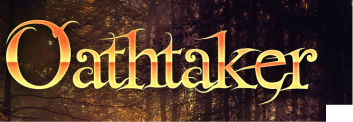The only way forward was to jump—or in the literary world, to go on to volume two—but by then, I wasn’t sure that volume two wouldn’t do the same thing to me again!
I guess I’ll just say it: I don’t life cliffs. I don’t like hanging on the precipice. For this reader, a story can have any number of questions hanging at the end, any number of threads not crucial to the story at hand that may be picked up and followed, perhaps even answered, later. But “the end,” when it arrives, must include a satisfying resolution to the problem that urged this reader on to the last page. Thus it is that I want to be able to read “the end,” not “this is only an interlude” or the like. Do other readers feel better when they arrive at the cliff and read, rather than “to be continued,” that they have merely stopped “at a resting place”? I would be curious to know (so feel free to share your thoughts with me!).
So, in light of all of this, how is it—why is it—that the Wattpad reading community has become so popular? Wattpad can be used in a manner similar to that of serial publishing, an approach we all likely identify as having been in vogue in Charles Dickens’s day, when readers patiently awaited the next installment of their favored reader to get to the next part, chapter or scene of a story. But today, we complain when our computers don’t respond quickly enough, when the printed page is coming out of our printer too slowly, when we try to call someone and they don’t answer their cell (for goodness sake!). You would think that publishing something in serial installments would be more than most readers could bear. Yet, from what I read, authors are doing precisely that through Wattpad and are gaining a following in the process. So, I wonder, what happens if the author only ever intends to, and then only does, publish a portion of a full-length work in that manner? I expect it would look much like a “look inside” from Amazon. Does that ever happen? Would readers be angry? The full copy would still always be available at their online or local retailer—but would readers feel they had been duped somehow? It’s food for thought—and I wonder—in such event, should the author say at the outset:
“Watch out for cliffs?”



